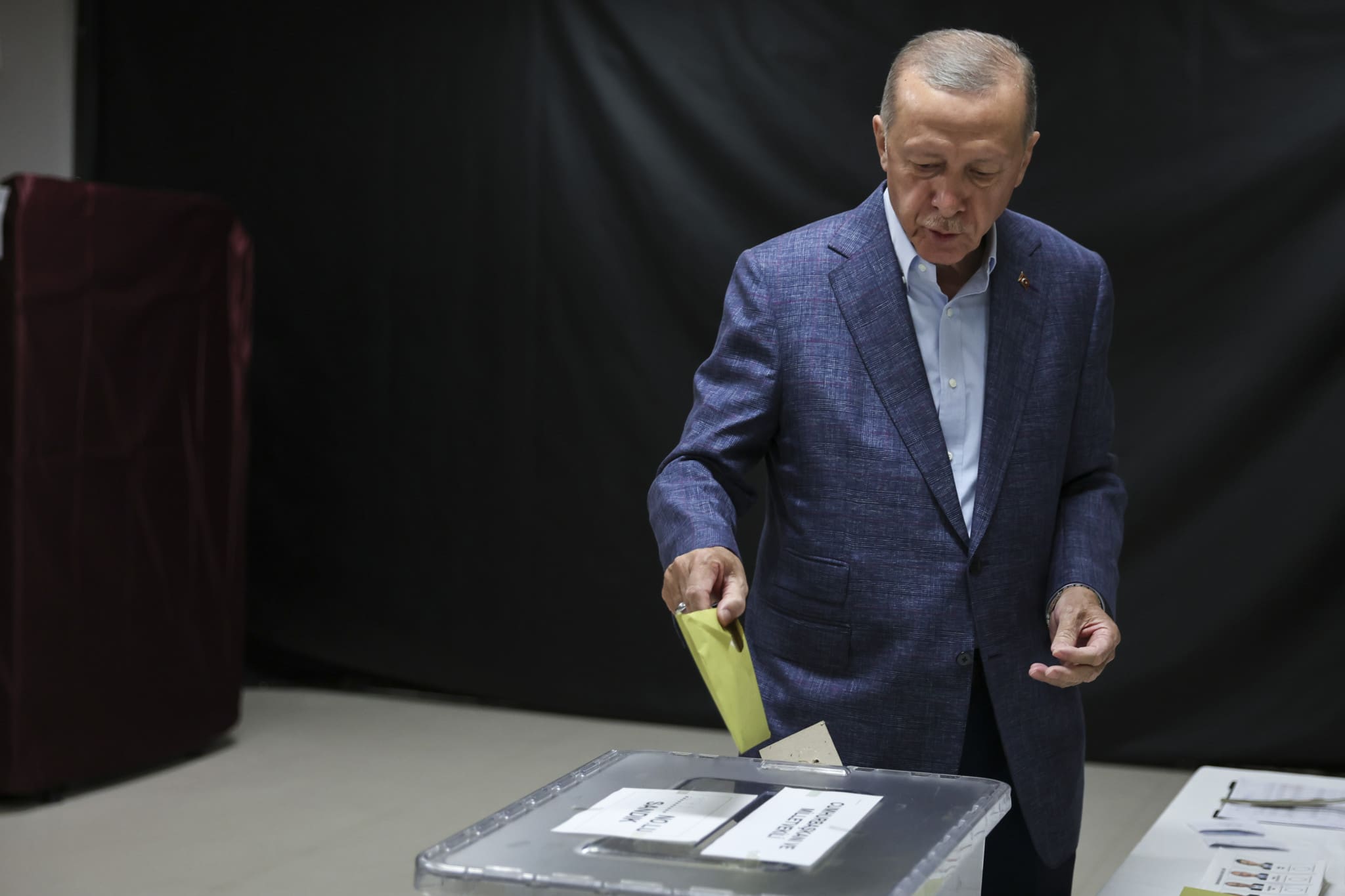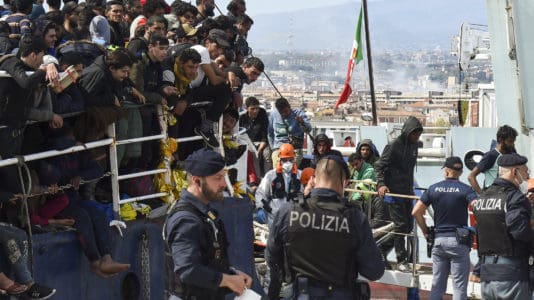President Recep Tayyip Erdoğan looks set to take a four-point lead into a second-round run-off in Turkey’s presidential election.
With 99.9 percent of all ballot boxes counted from the first round, the Turkish electoral commission announced that no candidate had surpassed the 50 percent threshold to win the election in the first round. Erdoğan, the incumbent, received 49.4 percent of the vote, while long-serving opposition leader, Kemal Kılıçdaroğlu, scored 45 percent.
Right-wing radical, Sinan Oğan, has become the unlikely kingmaker as his 5.2 percent vote share could have a huge bearing on who reigns victorious in the run-off. Also-ran Muharrem İnce, who pulled out three days before the election after a sex tape scandal he vehemently rejects the authenticity of, received 0.4 percent.
It’s the tightest presidential election in Turkey for decades with Erdoğan being elected outright with an absolute majority in the first round of voting in both his previous defenses.
Erdoğan remained defiant on Sunday and expressed his confidence he would get the job done in the second round, while Kılıçdaroğlu told crowds of supporters, “If our nation says second round, we will absolutely win in the second round.”
“Despite all of his lies and attacks, Erdoğan did not receive the desired outcome. No one should be enthusiastic about this being a done deal,” Kılıçdaroğlu added.
In a speech late on Sunday, nationalist Oğan revealed he had not decided who he would support in the run-off and would make such a decision following a consultation with his party and its supporters. He did however explain in no uncertain terms his conditions for supporting either candidate.
“What I want is clear, it is the departure of the Syrians. All refugees must return home. I will vote for the candidate who agrees with this and puts this policy into practice.”
The election has been hotly contested against a backdrop of economic decline across the country. Inflation remains dangerously high at 44 percent — albeit considerably lower than last year’s peak of 85.5 percent — and a cost of living crisis is in full swing.
The devastating earthquakes in February have also formed part of the campaign against Erdoğan, with the opposition claiming the Turkish government was far too slow to act with its support and aid to the survivors. This doesn’t, however, appear to have resonated with voters living in the affected areas where Erdoğan’s support dropped only negligibly by 2-3 percentage points.
The election has also been fought around the ideological future of Turkey and how it wishes to be portrayed on the global stage. While Erdoğan remains hugely critical and skeptical of the West and particularly the European Union, which he accuses of attempting to bring down his Islamist government, Kilicdaroglu has vowed to revive Turkish democracy by scrapping certain executive powers, as well as reintegrating Turkey into the Western world and revitalizing relations with its NATO partners.
A second round of voting is scheduled to take place on May 28.





